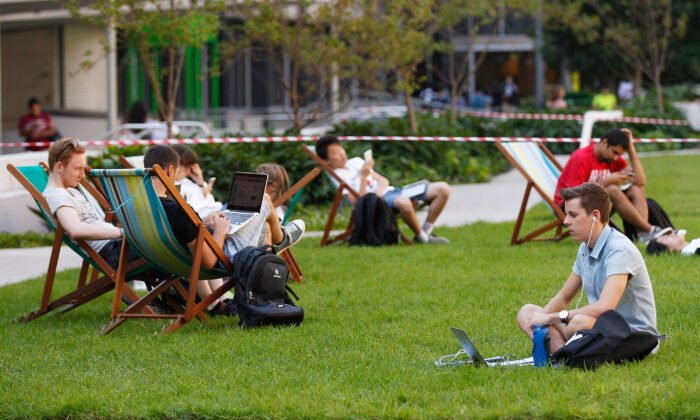Industry Bodies Debunk Misleading Claims of International Students Contributing to Housing Shortages
IHEA CEO Peter Hendy stated that international students accounted for only 4 percent of the rental market.
Independent higher education providers and the business community in Australia have expressed that attributing housing shortages and rental unaffordability to international students is misleading.
During a recent Senate hearing, representatives from Independent Higher Education Australia (IHEA) presented their perspectives on a new education bill introduced by the Labor government.
While the government argued that the bill aimed at enhancing the quality and integrity of the international education sector, the IHEA contended that it was primarily about reducing immigration figures.
After the borders reopened post the COVID-19 pandemic, migration saw a significant increase.
IHEA’s View on International Students and Housing Crisis
During his testimony on Aug. 6, IHEA CEO Peter Hendy dismissed the notion that international students were to blame for housing shortages and rental unaffordability, labeling it as misleading.
Referencing research by the Property Council of Australia, the CEO emphasized that international students contributed merely 4 percent to the rental market.
“The presence of international students does not necessarily have a negative impact on the rental market,” he remarked to the Education and Employment Legislation Committee.
“Although the number of students could slightly influence it, that is not the primary concern.”
Similarly, Wendy Black, the executive director of the Business Council of Australia (BCA), stated that international students were not the root cause of the current housing crisis.
“The shortage of housing stems from poor regulations, inadequate planning, slow approvals, skills shortages in construction, and expensive building costs, which have lowered new housing availability in the market,” she highlighted.
“The absence of new homes leads to higher prices and intense competition for suitable accommodation, exacerbated by shifts in household sizes declining over time and accelerating during the pandemic.”
Black emphasized that to address the housing crisis, the government must focus on increasing housing supply at its core.
She also warned that short-term fixes like capping international student numbers could have adverse long-term effects on the broader economy.
Business Community Says International Students Couldn’t Fix Australia’s Skill Shortages
Black also mentioned that relying on international students to fulfill skill shortages in Australia was unrealistic.
She clarified that overseas students came to Australia to learn specific skills, which might not align with the nation’s demands.
Furthermore, she mentioned that only a fraction of international students would eventually decide to settle in Australia.
“Merely 16 percent will choose to stay on. While this may fill a portion of the gap, it does not address the entirety of the issue,” Black elaborated.
“Thus, if the intention is to tackle Australia’s skill shortages through this method, it is not a viable solution.”
Black stressed that the government should promote domestic students to pursue courses that teach skills in high demand more effectively.





